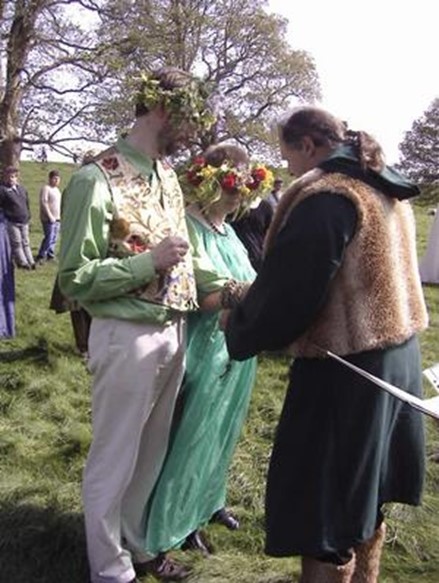What is the difference between a religious and a civil marriage ceremony?
When it comes to wedding ceremonies, you need to choose between holding a religious ceremony and a civil ceremony. Both of them have their own unique characteristics and significance. Understanding the differences between these two types of ceremonies can help you make an informed decision that aligns with your beliefs, values, and desires.
In this article, we will explore the contrasting features of a religious wedding ceremony and a civil wedding ceremony, shedding light on their distinct elements and helping couples navigate their options.
1. Context and Beliefs:
Religious Wedding Ceremony: A religious wedding ceremony takes place within the context of a specific religious faith, such as Christianity, Islam, Judaism, Hinduism, or others. It typically follows the rituals, traditions, and beliefs of that particular religion. The ceremony is officiated by a religious leader, such as a priest, rabbi, imam, or religious minister, who performs the religious rites and blessings.
Civil Wedding Ceremony: A civil wedding ceremony, on the other hand, is a non-religious or secular ceremony conducted by a government-appointed official, such as a judge, magistrate, or a civil celebrant. It does not have any religious affiliations or religious rituals incorporated into the ceremony.
2. Legal Recognition:
Religious Wedding Ceremony: Religious wedding ceremonies have legal significance and are recognized by Australian States and Territories. The religious leader officiating the ceremony has the authority to solemnize the marriage, sign the marriage license, and legally bind you in “holy matrimony”. It is essential to ensure that the religious ceremony adheres to the legal requirements of the State or Territory your marriage is taking place.
Civil Wedding Ceremony: A civil wedding ceremony, regardless of religious beliefs, is a legally recognized marriage ceremony. The officiant is authorized by the Attorney General’s Department (commonwealth government) to perform the marriage rites, sign the official marriage certificate, and legally bind you in marriage. The focus of a civil ceremony is on the legal union rather than religious elements.
3. Rituals and Customs:
Religious Wedding Ceremony: Religious ceremonies are rich in rituals, symbolism, and traditions that vary across different faiths. These can include prayers, scripture readings, religious hymns, vows specific to the religion, blessings from religious authorities, and cultural customs unique to the religious community. The ceremony often takes place in a religious venue, such as a church, mosque, temple, or synagogue, which holds spiritual significance for you and your faith or religious heritage.
Civil Wedding Ceremony: Civil ceremonies are secular in nature and do not include religious rituals or prayers. They tend to be more flexible and allow you to personalize your vows, readings, and ceremony structure. Civil ceremonies can be held in various locations, such as a registry office, courthouse, park, garden, or any venue of your choice, without any specific religious affiliation.
4. Flexibility and Personalization:
Religious Wedding Ceremony: While religious ceremonies typically follow a set structure and religious guidelines, you may have some flexibility to personalize certain aspects. You may be able to choose readings, music, and include personal vows within the boundaries of the traditions of your chosen religion.
Civil Wedding Ceremony: Civil ceremonies offer greater flexibility for personalization. You can craft your own vows, choose readings, and incorporate rituals or symbolic gestures that hold personal significance just for you, rather than adhering to specific religious requirements. This allows for a more tailored and individualized ceremony that reflects your unique love and relationship.
Things to think about:
● What type of ceremony do you want?
● Is there a family tradition that you want to adhere to that involves getting married in a church, mosque or temple?
● Do you already have a relationship with your religious leader?
● Are you hoping for a traditional wedding or do you want to create a unique ceremony that reflects the two of you?
If you are religious but are unsure of the ceremony style that will bring your wedding dreams to life, make an appointment with your religious leader to chat through the ceremony options. You could also make an appointment with a local celebrant to chat through the civil ceremony options. This will allow you to make an informed decision.
Remember, both religious and civil ceremonies can be beautiful, unique and memorable – because the day belongs to you and the ceremony is your own. Follow your heart to fulfill your dreams and you can’t go wrong.


